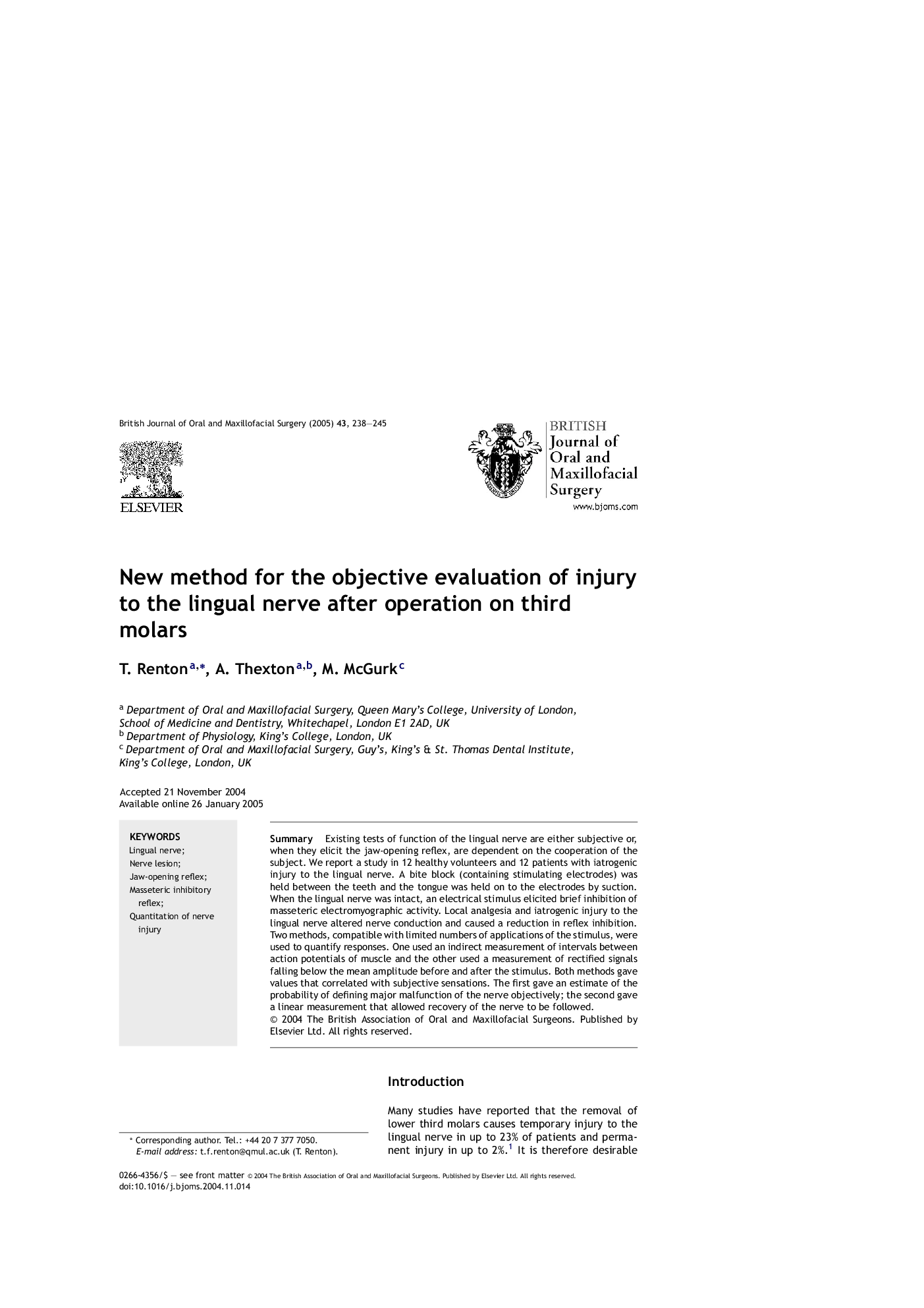| Article ID | Journal | Published Year | Pages | File Type |
|---|---|---|---|---|
| 9998785 | British Journal of Oral and Maxillofacial Surgery | 2005 | 8 Pages |
Abstract
Existing tests of function of the lingual nerve are either subjective or, when they elicit the jaw-opening reflex, are dependent on the cooperation of the subject. We report a study in 12 healthy volunteers and 12 patients with iatrogenic injury to the lingual nerve. A bite block (containing stimulating electrodes) was held between the teeth and the tongue was held on to the electrodes by suction. When the lingual nerve was intact, an electrical stimulus elicited brief inhibition of masseteric electromyographic activity. Local analgesia and iatrogenic injury to the lingual nerve altered nerve conduction and caused a reduction in reflex inhibition. Two methods, compatible with limited numbers of applications of the stimulus, were used to quantify responses. One used an indirect measurement of intervals between action potentials of muscle and the other used a measurement of rectified signals falling below the mean amplitude before and after the stimulus. Both methods gave values that correlated with subjective sensations. The first gave an estimate of the probability of defining major malfunction of the nerve objectively; the second gave a linear measurement that allowed recovery of the nerve to be followed.
Related Topics
Health Sciences
Medicine and Dentistry
Dentistry, Oral Surgery and Medicine
Authors
T. Renton, A. Thexton, M. McGurk,
